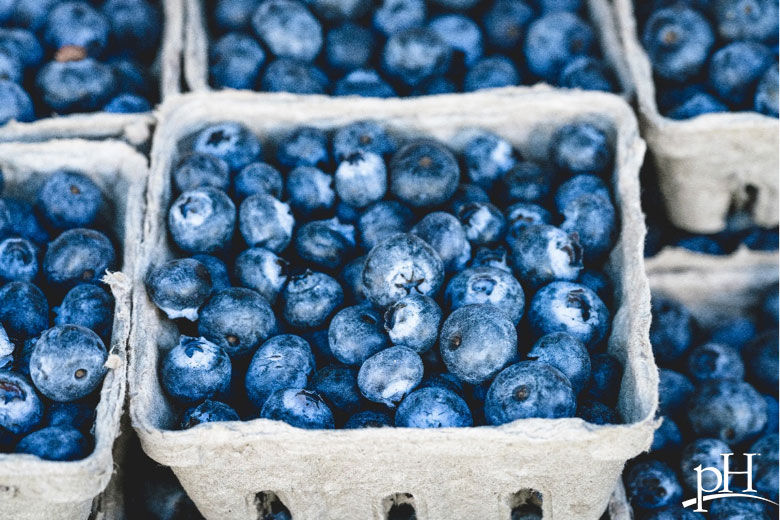Want to improve your memory? Try a cup of blueberries
9 years ago | Nutrition
By pH health care professionals
It’s blueberry season! And if the taste alone wasn’t incentive enough to go get yourself a carton, new research shows that blueberries may be quite the superfood for your brain and memory. Two new studies show that eating blueberries may improve thinking and memory skills in older adults with memory issues.
This may sound like old news since the blueberry, widely praised for its antioxidant effects, has long been revered by those who seek the next “Fountain of Youth.” But actually, there have been very few human blueberry studies done. There have been many promising molecular, cellular and animal studies, which have been used to tout the berry’s brain-enhancing potential. But nevertheless, we need to see what actually happens when a person eats blueberries. Right?
That’s just what researcher Robert Krikorian, PhD, from the University of Cincinnati Academic Health Center, along with his team, set out to do. He presented the results just this spring at the National Meeting and Exposition of the American Chemical Society in San Diego, Calif.
His studies focused on adults in their 60s and older. The first study included 47 participants who consumed the equivalent to one cup of blueberries a day (in the form of a freeze-dried blueberry powder) for 16 weeks. Of course, some participants got the blueberry powder and others were unknowingly consuming a placebo. The researchers assessed participants’ brains through cognitive tests and brain imaging tests.
What they found was encouraging. Researchers noted significant improvements in memory among the blueberry-eaters.
The biggest gain was a 72 percent increase in access to semantic memory. Semantic memory is a part of the long-term memory that “processes ideas and concepts that are not drawn from personal experience,” LiveScience explained. You use semantic memory when you are trying to recall the name of something or basic facts (like state capitals, for example) that you’ve acquired throughout your life.
The second study was on 94 older adults with subjective memory complaints, only this study was for 24 weeks and included variations with fish oil. These participants’ memory issues were not as severe as the first study’s, which may be why the findings were not as robust, Dr. Krikorian suggested. However, they found that the blueberry-eaters “felt like they were performing better in their everyday lives,” and “had a better sense of well-being and were making fewer memory mistakes,” he noted.
Be proactive
You are already being proactive by taking the time to learn about nutrition and your memory. Now, take that information and apply it to your life! Here are some fun ideas:
- Sprinkle blueberries into your daily breakfast. They go great in oatmeal.
- Use frozen blueberries to make a refreshing summer smoothie. It’s healthier than ice cream!
- Go blueberry picking with your family. It’s a great way to be active and get a little vitamin D, too!
- Share your healthy habits by teaching others! Eating blueberries because you’ve heard “they’re good for you” is great, but knowing what they do for your body makes more of an impact and encourages a sustainable healthy lifestyle.
Curious what nutrients you need to keep your memory sharp? Come in for your pH Nutrition test and see if deficiencies – caused by diet, lifestyle or prescription drugs – are standing in the way of your best health ever.
Enjoy Your Healthy Life!
The pH professional health care team includes recognized experts from a variety of health care and related disciplines, including physicians, attorneys, nutritionists, nurses and certified fitness instructors. To learn more about the pH Health Care Team, click here.







